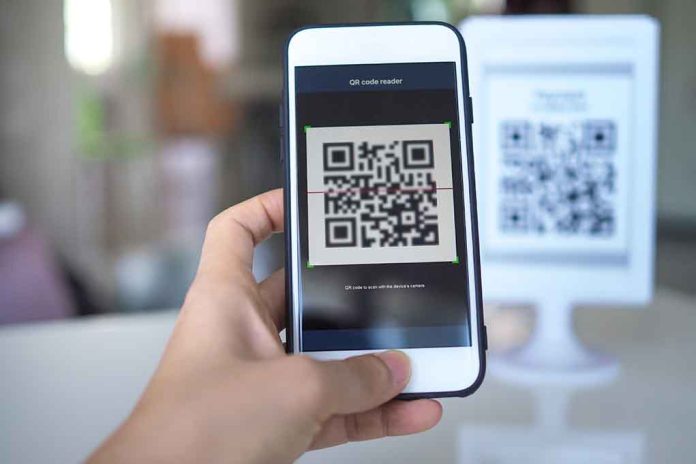
(DailyDig.com) – According to the Federal Trade Commission (FTC), a Quick-Response (QR) code, scanned with a cellphone camera, could subject you to potential identity theft.
Retailers benefit from this by gaining analytics about consumer habits. While they provide some benefits for customers and assist businesses with analytics, the FTC cautions that they may also provide crooks with a tool for acquiring customers’ private data.
Identity theft may be quite costly. According to the FTC, fraudsters may use your private data to use victims’ credit cards, empty bank accounts, establish new accounts, and even fake their identity when detained by police.
Someone’s identity might’ve been stolen if there is unusual spending on credit cards and bank account withdrawals.
Scammers may occasionally install their own fake QR codes in locations where regular codes are popular, such as restaurant menus, music venues, retail outlets, and public fliers. They could disguise QR codes from genuine businesses in order to steal private data.
Other fraudsters use text messages or emails to deliver unwanted QR codes. They often state that the situation is urgent by saying that a box you weren’t anticipating was undeliverable and that you must call customer support immediately. The FTC warns that they urge the victim to scan the harmful QR code and access the URL that would take them to bogus websites as soon as possible. They imitate reputable websites or download malware on your gadget with the same goal in mind: to steal your money and identity.
Before you scan a QR code, think again. If a code occurs unexpectedly, investigate it first. The code might be a fraud if it includes a URL with misspellings.
Be wary of QR codes that arrive suddenly. Even if a text or email from a firm seems to be authentic, contact them online or by phone.
Update the software on your phone. Install the most recent versions of the operating system and use strong passwords to secure your online accounts. Use multiple authentication methods so that only you have access to your personal accounts.
Copyright 2023, DailyDig.com













